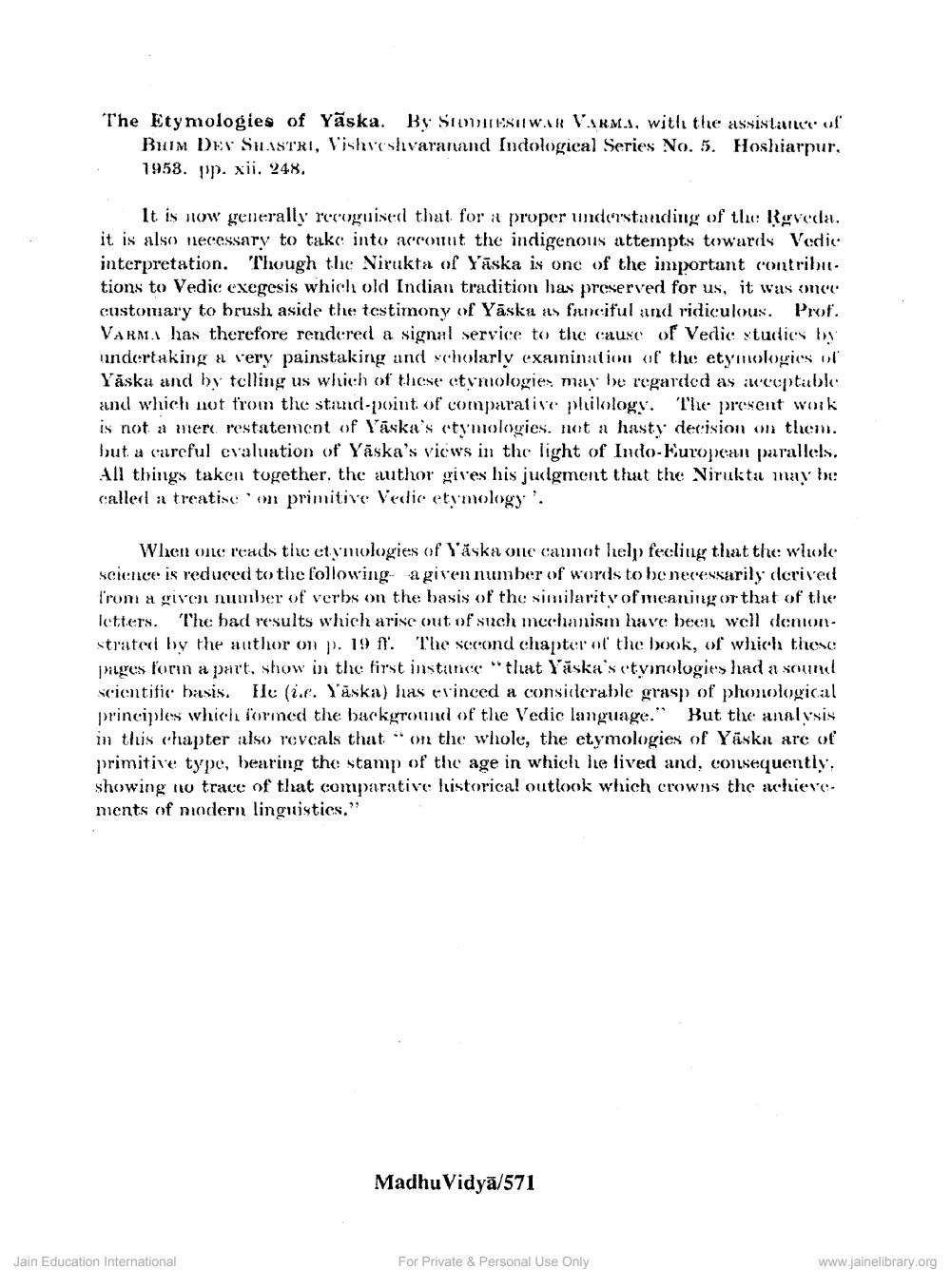________________
The Etymologies of Yāska. By SITESITWAR V'ARM., with the assistance of
Bum DES SHLISTRI, Vishveshivaranand Indological Series No. 5. Hoshiarpur, 1953. pp. xii. 248.
It is now generally recoguises that for a proper understanding of the lyvedla. it is also necessary to take into account the indigenous attempts towards Vedie interpretation. Though the Virukta of Yāska is one of the important contribut. tions to Vedic exegesis which old Indian tradition has preserved for us, it was once customary to brush aside the testimony of Yaska as fanciful and ridiculous. Prof. VARM. has therefore rendered a signal service to the cause of Vedic studies by undertaking it very painstaking and scholarly examination of the etymologies of Yăska and by telling us which of these ctymologies may be regarded as ik'ceptable and which not from the stand-point of comparative philology. The present work is not a mere restatement of Váska's etymologies, not a hasty decision on them. but a careful cvaluation of Yāska's vicws in the light of Indo-European parallels. All things taken together, the author gives his judgment that the Nirukta may be called a treatise on primitive Vedie etymology.
When one reads the etymologies of Yáska one cannot lielp feeling that the while science is reduced to the following a given number of words to be necessarily derived from a given number of verbs on the basis of the similarity of meaning or that of the letters. The bad results which arise out of such mechanisın have been well denionstrated by the author on p. 19 ft. The second chapter of the book, of which these piges for a part, show in the first instance that laska's etvinologies had a sound! scientific basis. He (i.f. Yāska) has evinced a considerable grasp of phonological principles which formed the background of the Vedic language." But the analysis in thus chapter also reveals that * on the whole, the etymologies of Yaska are of primitive type, bearing the stamp of the age in which he lived and, consequently. showing no trace of that comparative historical outlook which crowns the achievements of nodern linguistics."
Madhu Vidyā/571
Jain Education International
For Private & Personal Use Only
www.jainelibrary.org




